Population Wars: Adam Martin replies to Global Population Speak Out
by Adam Martin I appreciate the thoughtful GPSO reply to my blog post. But I respectfully decline the offer to sign their pledge. Here is why:
Projections of population into the future that fail to account for the power of changing incentives are intellectually sterile explanations and policies that deny the rational response of individuals to incentives will prove impotent or worse.
Why are market-oriented economists so confident that population will be self-regulating? Well, under a regime of property rights, as we use up any scarce global resources, they will become relatively more scarce. This will put upward pressure on their prices. The first response is for individuals to cut back their consumption, but that's not the most important adjustment (that's only short term, after all).
The more important response is the one Julian Simon pointed out: the increase in resource prices creates an incentive to find more efficient means to use them or to come up with substitutes. Innovation of what we use and how we use it is the best path we know of to sustainability in development. Institutions such as property rights, the family, and, yes, even money are preconditions for aligning incentives with conservation and unleashing systematic resource-saving innovations.
Here both our deepest moral commitments, as well as sound economics, overlap with the professed beliefs of GPSO: certainly women should not have reproductive decisions forced upon them. So the message is not that nothing can go wrong. Absent secure individual rights, individual responsibility, and free markets, quite a bit can: first and foremost for the victims of injustice. However, simply admitting that these problems are real is a long way from endorsing statements like this (from the email I was sent):
the current size and growth of human population [is] a sustainability issue no less crucial than over-consumption in developed nations and all the resultant emissions, habitat loss and toxic pollutants. [emphasis in original]
I want to raise two problems with these sorts of statements. First, admitting that population growth can have adverse consequences is a long way from admitting that anyone has the knowledge to determine the "right" population size, even roughly. Statements like the one above, not to mention the affiliations of some of GPSO's signees--convince me that they believe otherwise. And I'm not arguing that sustainable population size is a difficult calculation to make, I'm arguing that it's meaningless. Sustainability means a balance between what present and future individuals want to do and can do. When human capacities and desires are by their nature heterogenous and changing over time--as in the long run that sustainabilitistas worry about--then what counts as sustainable is simply not knowable unless one knows current and future capacities and desires.
Second, I want to raise the question as to whether a "public discussion addressing the size and growth of human population" is compatible with those individual rights. If governments decide what the right population size is, and the actions of free and responsible individuals give rise to a different population size, either the population target or individual rights must be sacrificed. I believe--I hope--that the GPSO signees would abandon their plan. History has shown too many willing to do the opposite. It is for this reason that, while I obviously do not believe women should be coerced, I cannot sign onto "population justice" as defined by GPSO.
If it is excessive procreation we are worried about, we would do well to remember the words of Henry Simon: "Academic economics is primarily useful, both to the student and to the political leader, as a prophylactic against popular fallacies."
 From Aid to Equality
From Aid to Equality





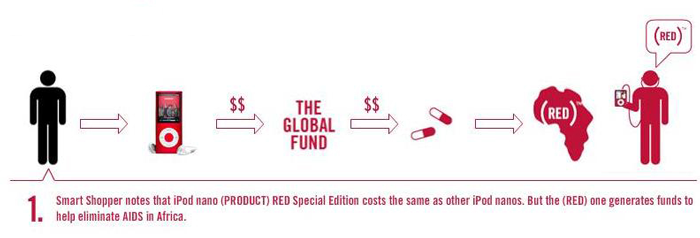
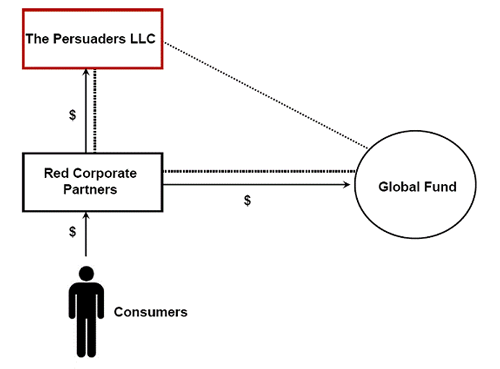

 Clive Crook is such a calm, sensible, non-ideological voice, that if you ever get him really upset, you're in deep trouble. And he could hardly contain himself at
Clive Crook is such a calm, sensible, non-ideological voice, that if you ever get him really upset, you're in deep trouble. And he could hardly contain himself at 

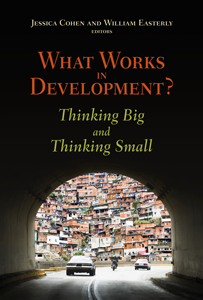
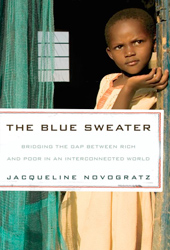 When Jacqueline Novogratz, founder of the Acumen Fund, was in her early twenties, she turned down a promotion on Wall Street and went to the Cote d’Ivoire to open a new branch of the African Development Bank focused on microfinance for women. But the West African women she was supposed to work with shunned her. They talked about her derisively in her presence, letting her know exactly what they thought of an untested, unmarried, American woman with poor French skills being sent to lead them. They intimidated her, locked her out of the office, and (Novogratz suspects) actually gave her food poisoning to scare her away. It worked.
On her next assignment, in Nairobi, she spent hundreds of hours analyzing the loan portfolio of a young microfinance organization. Presenting her results, she recommended a drastic restructuring. A week later, she found her handwritten report had been “lost,” and all her work destroyed.
When Jacqueline Novogratz, founder of the Acumen Fund, was in her early twenties, she turned down a promotion on Wall Street and went to the Cote d’Ivoire to open a new branch of the African Development Bank focused on microfinance for women. But the West African women she was supposed to work with shunned her. They talked about her derisively in her presence, letting her know exactly what they thought of an untested, unmarried, American woman with poor French skills being sent to lead them. They intimidated her, locked her out of the office, and (Novogratz suspects) actually gave her food poisoning to scare her away. It worked.
On her next assignment, in Nairobi, she spent hundreds of hours analyzing the loan portfolio of a young microfinance organization. Presenting her results, she recommended a drastic restructuring. A week later, she found her handwritten report had been “lost,” and all her work destroyed. News sources say that President Obama will choose “escalate” with additional troops for Afghanistan in his speech at West Point tonight. I and many like-minded individuals find this disastrous.
“Like-minded” means that critics of top-down state plans for economic development are also not fans of top-down state plans for military development. If the Left likes the first, and the Right likes the second, that just shows you how incoherent Left and Right are.
News sources say that President Obama will choose “escalate” with additional troops for Afghanistan in his speech at West Point tonight. I and many like-minded individuals find this disastrous.
“Like-minded” means that critics of top-down state plans for economic development are also not fans of top-down state plans for military development. If the Left likes the first, and the Right likes the second, that just shows you how incoherent Left and Right are.
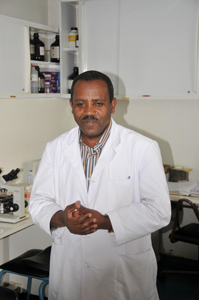
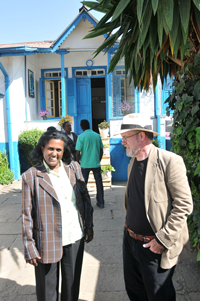
 An expert commission of African leaders today announced their plan for comprehensive reform of music band U2. Saying that U2’s rock had lost touch with its African roots, the commission called for urgent measures to halt U2’s slide towards impending crisis.
An expert commission of African leaders today announced their plan for comprehensive reform of music band U2. Saying that U2’s rock had lost touch with its African roots, the commission called for urgent measures to halt U2’s slide towards impending crisis.